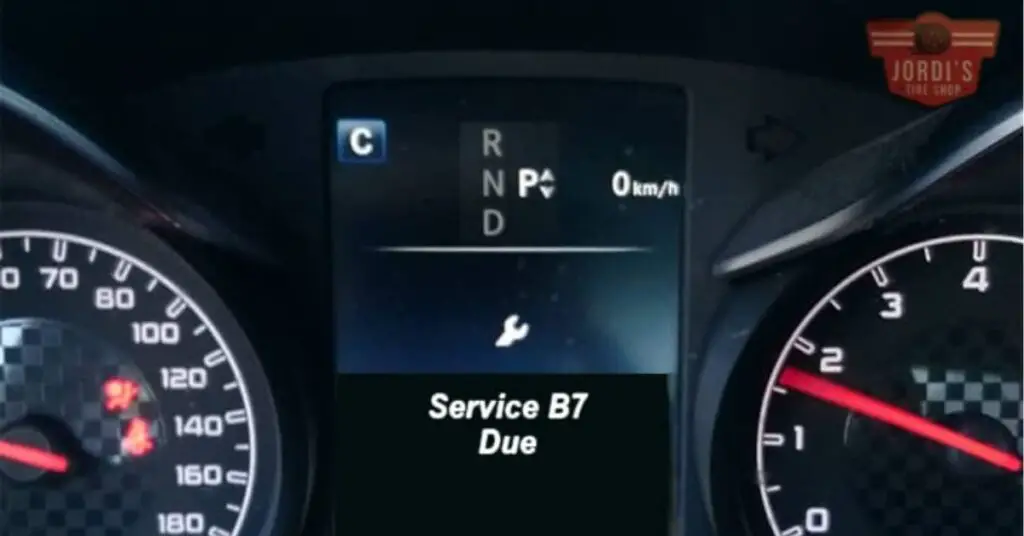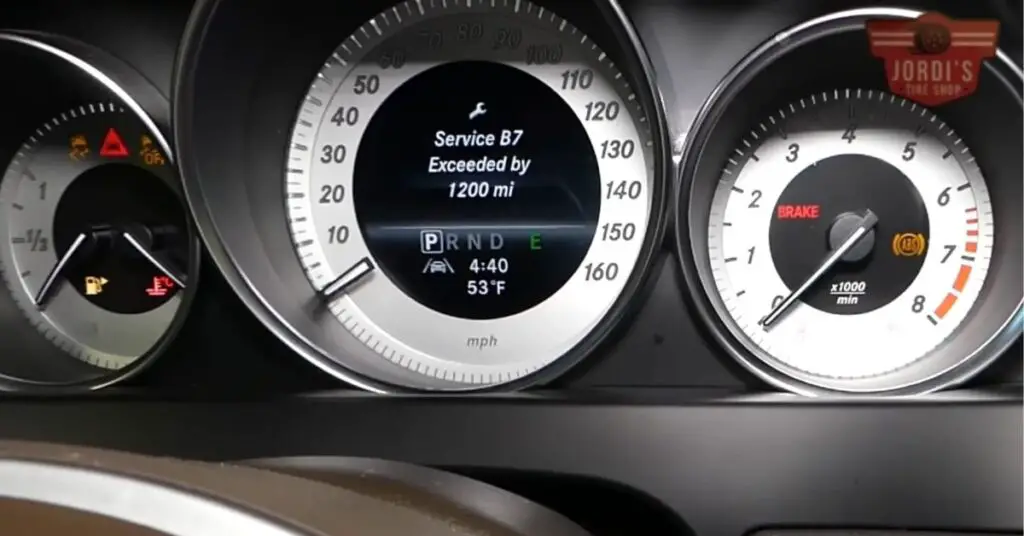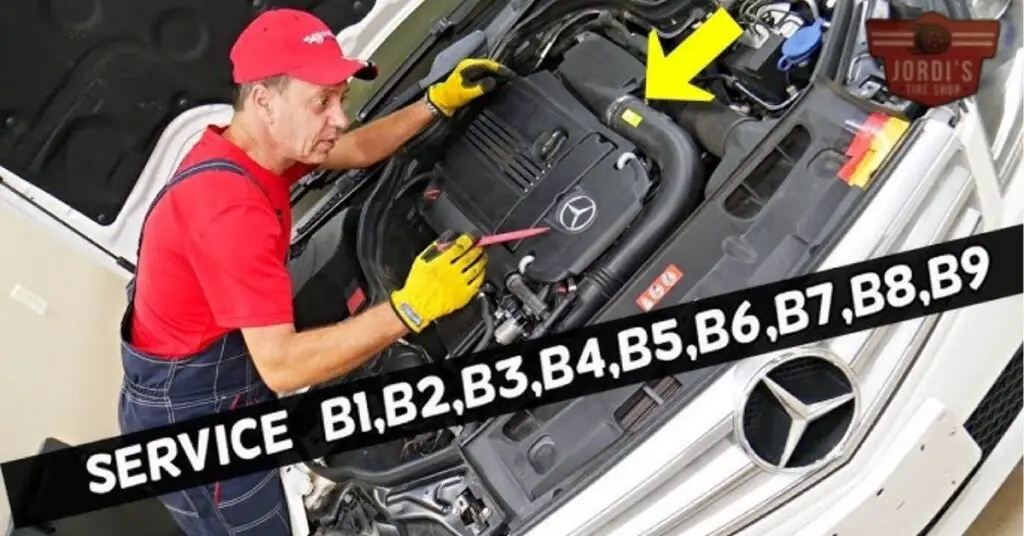Owning a Mercedes is more than just a statement of luxury; it’s a commitment to quality and performance. That’s why keeping up with your vehicle’s maintenance schedule, especially the Service B7, is crucial. We’re here to guide you through what this service entails and why it’s so important for your cherished vehicle.
Navigating the world of car maintenance can seem daunting, but we’ve got your back. Service B7 isn’t just another item on your to-do list; it’s a comprehensive check that ensures your Mercedes stays in top condition, running smoothly and efficiently. Let’s dive into the essentials of Service B7 and how it can extend the life and performance of your Mercedes.
Understanding Mercedes Service B7

Building on the importance of keeping a Mercedes in prime condition, let’s delve into what Mercedes Service B7 encompasses. This comprehensive check-up goes beyond a simple oil change or tire rotation. It is a detailed inspection designed specifically for Mercedes vehicles to ensure they operate at their best. When we talk about Service B7, we’re looking at a series of checks and replacements that are crucial for the vehicle’s longevity and performance.
Service B7 includes various maintenance tasks such as replacing the engine oil and filter, checking the tire pressure, and inspecting the brakes for wear and tear. It also involves a thorough inspection of the vehicle’s fluid levels and may include replacing components like the air filter or the cabin filter, depending on the vehicle’s specific needs. Additionally, critical safety checks are performed to ensure that every part of the Mercedes is functioning as it should, providing peace of mind to the owner.
One unique aspect of Service B7 is its attention to the car’s computer system. Technicians may update firmware, ensuring the vehicle’s electronic components work seamlessly with mechanical parts. This integration is vital for maintaining the sophisticated performance Mercedes vehicles are known for.
It’s also worth noting that the specific tasks included in Service B7 can vary based on the vehicle’s model and year. Mercedes designs these service intervals to cater to the needs of their diverse lineup of vehicles, ensuring each model receives the appropriate level of care.
Scheduling Service B7 is straightforward, but it’s essential to adhere to the recommended timing. Typically, Mercedes suggests undergoing Service B7 after the first 10,000 miles and subsequently every 20,000 miles. However, adhering to the vehicle’s specific maintenance schedule as outlined in the owner’s manual ensures optimal performance and longevity.
Understanding and adhering to the Mercedes Service B7 requirements is key to ensuring your vehicle remains in excellent condition, providing a safe, efficient, and enjoyable driving experience.
What to Expect During Service B7

Entering a Mercedes dealership or a certified mechanic’s shop for Service B7, customers can anticipate a thorough examination and servicing of their vehicle, designed to ensure it remains in peak condition. At the core of Service B7, there are several key procedures that we’ll outline below, which align with maintaining the sophisticated engineering and premium performance standards of Mercedes vehicles.
First, one of the primary components of Service B7 is an in-depth oil change and filter replacement. Superior engine performance hinges on fresh, high-quality oil and a clean filter to prevent contaminants from damaging the engine parts. Technicians use Mercedes-approved oil and filters, guaranteeing compatibility and optimal engine health.
Second, technicians perform a meticulous brake inspection. This involves checking the brake pads and discs for wear and tear, measuring the thickness of the pads, and ensuring the brake fluid is at the correct level. The braking system’s functionality is crucial for safety, making this step indispensable during Service B7.
Third, a tire inspection is carried out to assess their condition, including tread depth and tire pressure. Correct tire pressure is vital for fuel efficiency, performance, and safety. If necessary, technicians will adjust the pressure to match the manufacturer’s recommendations.
Next, fluid levels are examined and topped off as needed. This includes coolant, brake, power steering, and windshield washer fluids. Maintaining proper fluid levels prevents overheating and ensures the smooth operation of various vehicle systems.
Additionally, Service B7 includes a review of the car’s computer systems and software updates. These updates ensure that the vehicle’s electronic components work seamlessly with mechanical parts, enhancing overall performance and user experience.
These steps, among others, form the comprehensive check-up characteristic of Mercedes Service B7. They’re designed not just for maintenance but to diagnose and address potential issues before they become problematic. Importantly, during Service B7, technicians may identify areas that require more immediate attention, advising car owners accordingly. This proactive approach ensures that every Mercedes vehicle continues to provide a safe, enjoyable, and efficient driving experience for its owner.
Cost Factors of Mercedes Service B7
Diving deeper into the Service B7 for Mercedes vehicles, we recognize that understanding the cost is just as crucial as knowing the service details. The cost of Service B7 can vary significantly, influenced by several key factors. We’ll outline these to give you a clearer picture of what affects the pricing.
- Vehicle Model: Different Mercedes models may have specific service requirements that can impact the overall cost. For instance, a high-performance AMG model might require additional checks and high-performance parts, leading to a higher service cost compared to a standard C-Class.
- Dealership or Independent Service Center: Where you choose to have the service done can also affect the price. Typically, authorized Mercedes-Benz dealerships might charge more due to their specialized expertise and genuine parts. However, many independent service centers are capable of performing Service B7 at a lower cost using OEM (Original Equipment Manufacturer) parts.
- Regional Labor Rates: Labor costs can vary significantly depending on your geographical location. Areas with a higher cost of living might see corresponding higher rates charged by service centers.
- Parts Replaced: During Service B7, if any additional parts need replacing beyond the standard service scope, such as brake pads or rotors, this will increase the overall cost. The type and quality of parts used also play a role in the final bill.
- Existing Vehicle Condition: The current condition of your Mercedes can impact the service cost. Vehicles that have been well-maintained may require less intensive work during Service B7 compared to those that haven’t received regular maintenance, potentially reducing the cost.
Understanding these factors, you can better anticipate the expenses involved in Mercedes Service B7. It’s always advisable to consult with your service provider for an accurate quote, ensuring your Mercedes continues to deliver the performance and reliability you expect.
Preparing for Your Service B7 Appointment

After understanding the significance of Service B7 for Mercedes vehicles and grasping the various factors that influence the cost, it’s time to focus on how to prepare for your Service B7 appointment. Proper preparation can ensure a smooth and efficient service experience, letting you get back on the road with minimal hassle. Here, we’ll guide you through a checklist to get your Mercedes ready for its Service B7.
- Review Your Vehicle’s Service Manual: First and foremost, familiarize yourself with your Mercedes’ specific maintenance needs by reviewing the service manual. This manual contains vital information about what Service B7 entails for your model, helping you set realistic expectations.
- Check for Any Warning Lights or Issues: Before your appointment, take note of any warning lights on the dashboard or any issues you’ve noticed while driving. Informing the mechanics about these can provide them with important clues, ensuring a comprehensive service.
- Gather Relevant Documents: Collect all relevant documents, including your service history and any warranty information. These documents can provide the service team with a clear picture of your vehicle’s maintenance background and any coverage that may apply to the service tasks.
- Clean Out Your Vehicle: Remove personal items from your vehicle, especially in the trunk and other areas where the technicians might need access. A clean vehicle can speed up the service process, as technicians won’t have to navigate around your belongings.
- Plan Your Transportation: Since Service B7 can take several hours, think about your transportation needs. Many service centers offer loaner vehicles or shuttle services, so inquire about these options when you schedule your appointment.
Following these steps, you’ll not only prepare your Mercedes for Service B7 but also facilitate a more efficient and transparent service process. Plus, you’ll be better equipped to discuss any concerns with the service technicians, ensuring your vehicle’s needs are thoroughly addressed.
Common Questions About Mercedes Service B7

After understanding the significance of Service B7 for Mercedes maintenance and how to prepare for the service appointment, many Mercedes owners often have a few important questions. We’ve compiled a list of frequently asked questions to help provide clarity on this essential service.
What Does Service B7 Include?
Service B7, tailored for Mercedes vehicles, encompasses a comprehensive check that goes beyond routine maintenance. It includes oil changes, brake fluid replacement, and detailed inspections of brake components, lights, tire conditions, and fluid levels. This service ensures that your Mercedes operates at its optimal performance level.
How Often Should Service B7 Be Done?
The frequency of Service B7 varies based on the model, year, and driving conditions of the Mercedes vehicle. Generally, it’s recommended once every two years or after approximately 20,000 miles, whichever comes first. However, consulting the vehicle’s service manual or a certified Mercedes service center provides the most accurate guidance.
Can I Perform Service B7 Myself?
While some Mercedes owners have the skills to perform basic maintenance tasks, Service B7 involves comprehensive checks that require professional tools and expertise. For safety and warranty reasons, it’s advisable to have Service B7 done by certified technicians who specialize in Mercedes vehicles.
How Much Does Service B7 Cost?
The cost of Service B7 can vary widely depending on factors like location, dealership, and the specific needs of the vehicle. On average, owners might expect to pay anywhere from $400 to $600, but it’s best to consult with a service provider for a more precise estimate.
Addressing these common questions, we hope to have shed light on the critical aspects of Mercedes Service B7, ensuring your vehicle receives the care it needs to maintain its high performance and safety standards.
Conclusion
We’ve walked through the essentials of Service B7, highlighting its critical role in keeping your Mercedes in top shape. Understanding the need for regular maintenance like this ensures your vehicle runs smoothly and safely. Remember, investing in professional service is key to maintaining your car’s performance and extending its lifespan. We hope our insights help you navigate your next Service B7 with confidence and ease. Here’s to many more miles of joyful driving in your well-cared-for Mercedes!
Related Posts:
- MB Service A5: Your Guide to Maintenance and Repairs for Your Audi A5
- Mercedes A7 Service Checklist: Your Friendly Guide to Keeping Your Car in Top Shape
- Mercedes Benz A3 Service: Everything You Need to Know
- Mercedes Service B7: What You Need to Know
- Service Your A2 Mercedes: Everything You Need to Know
- Service Your A9 Mercedes with Ease: Tips and Tricks

